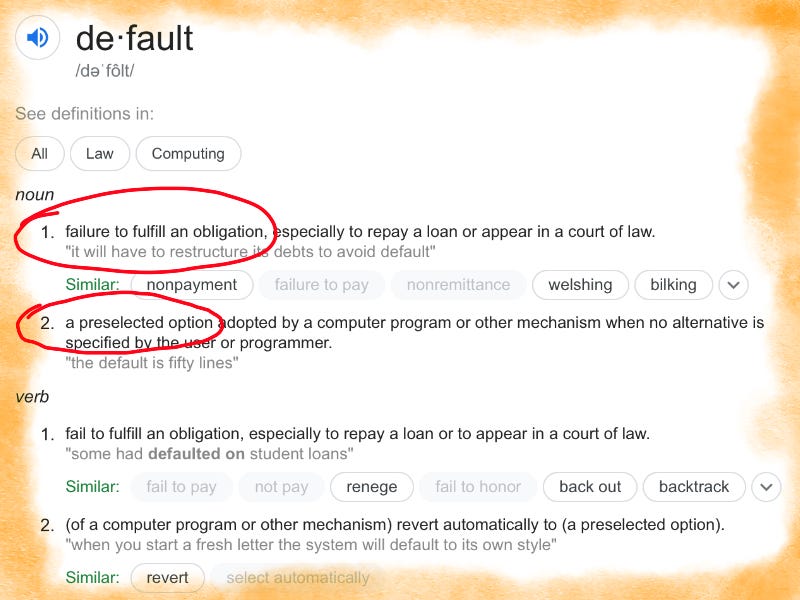The word default has two meanings: failure to fulfill an obligation, and a preselected option. We are finding out the hard way exactly how they are related.

Key points:
A complex system can be defined as one where every feature has a default setting, and lots of corner cases that must be taken into account.
A complex system can also be defined as one where a default of one kind — failure to fulfill an obligation, triggers a default of the other kind — a preselected contingency response option kicks in. So when you default on a car loan, the bank might repossess your car as its default response, unless a human overrides the decision.
The two types of defaults allow a complex system to operate effectively in a core “normal” operating mode, and protect itself against a zone of modeled contingencies with default responses to defaults.
This makes complex systems fragile in a very particular way. When the entire system needs to shift to a new equilibrium, it becomes very hard. Every default must be reset to a new value, which means every corner case around it must be re-solved. So for example, when you impose social distancing measures on an entire population, you have to suddenly figure out what to do about special needs populations, like prisoners, or sailors on a ship.
When the equilibrium is not just new, but dangerous, you also have to re-solve all the default response protocols to default events, because a lot of people are going to be defaulting on a lot of obligations all at once. The statistical assumptions underlying the system are going to get violated. When one restaurant defaults on rent, it makes sense to evict the business and lease out the property to another. But when almost all restaurants default on rent, you have to reconsider your response at a policy level.
So that’s where we are now with the entire world: we are resetting defaults, re-solving all corner cases, and reconsidering our default responses to all defaults. We are not particularly good at this, so it is already turning into an unholy mess. But I’m honestly surprised that it is working as well as it is. Perhaps the system has serendipitous levels of robustness.
But at least we have a new lens on systemic robustness and fragility that we can use in our future designs. Whenever you set a default option, ask how hard it is to move it, including all the corner cases. When a default event happens and a policy kicks in.
Welcome aboard to everybody who signed up since last week. If you signed up for the paid subscription you can read the first paywalled post I published last week, life go brr, on the go brr meme.











